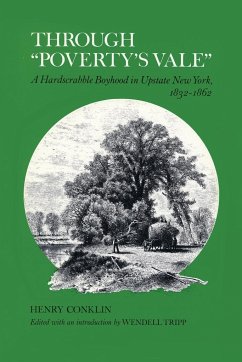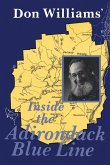Writing his full-length reminiscence in a lonely Adirondack cabin during the winter of 1891-92, Henry Conklin recounts the first thirteen years of his life on a farm in Schoharie County, his young manhood in Herkimer County, and his service in the Civil War. The story is one of a hardscrabble life, of farming on marginal land and struggling each day for necessary food and clothing. And yet Conklin asserts that these years were the happiest he knew. The Conklin family was close-knit, loving, and self-sufficient. They built their home, made their own clothing, and grew much of their food. Everyone contributed his or her share to the good of the family group. In this vivid portrayal of family life, we read about ordinary events that are unfamiliar to us today - weaving cloth, churning butter, making shingles, starting a fire with flint and steel, setting traps - and about the technology of the nineteenth century. With insight, humility, and a perspective gained through distance and time, Henry Conklin gives us a dramatic and moving narrative in which we become deeply involved. In telling his story, Conklin is not only reliving the past but also saving the events, experiences, and persons of his life from oblivion, and contributing to our historical knowledge of the rural backwaters of antebellum America. Conklin's reminiscence was preserved by his son and then by his grandson Roy Conklin, who brought it to the attention of Wendell Tripp. Several engravings supplement the text, and the editor has provided footnotes to many references that may be unclear to present day readers.
Hinweis: Dieser Artikel kann nur an eine deutsche Lieferadresse ausgeliefert werden.
Hinweis: Dieser Artikel kann nur an eine deutsche Lieferadresse ausgeliefert werden.








